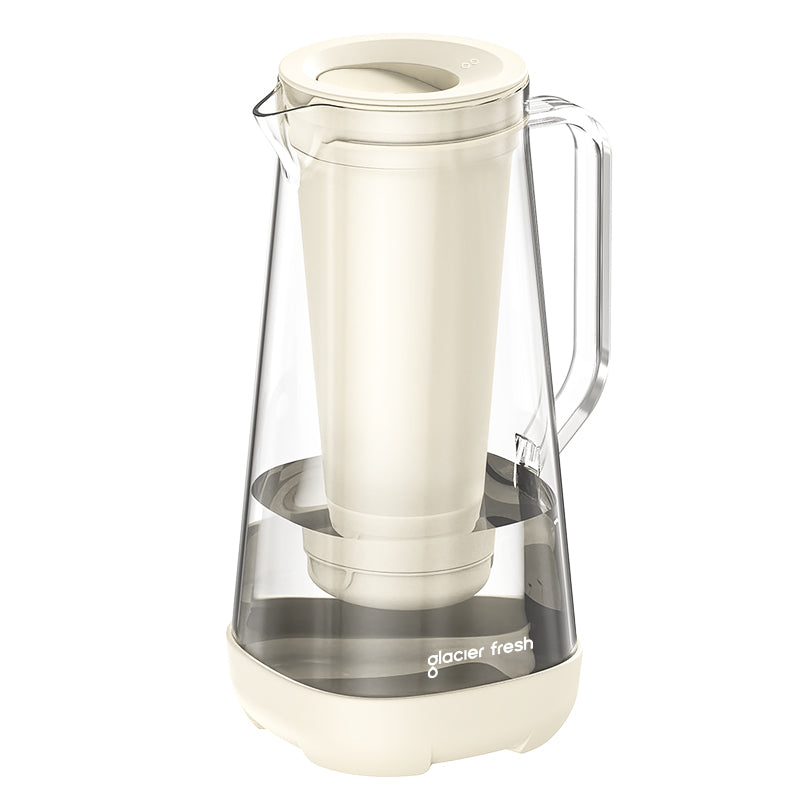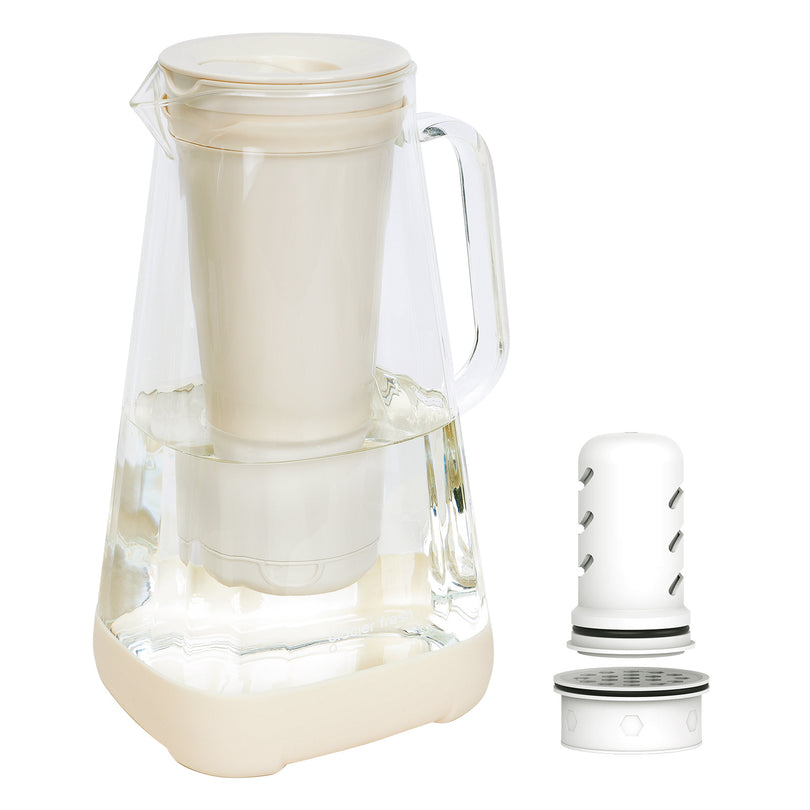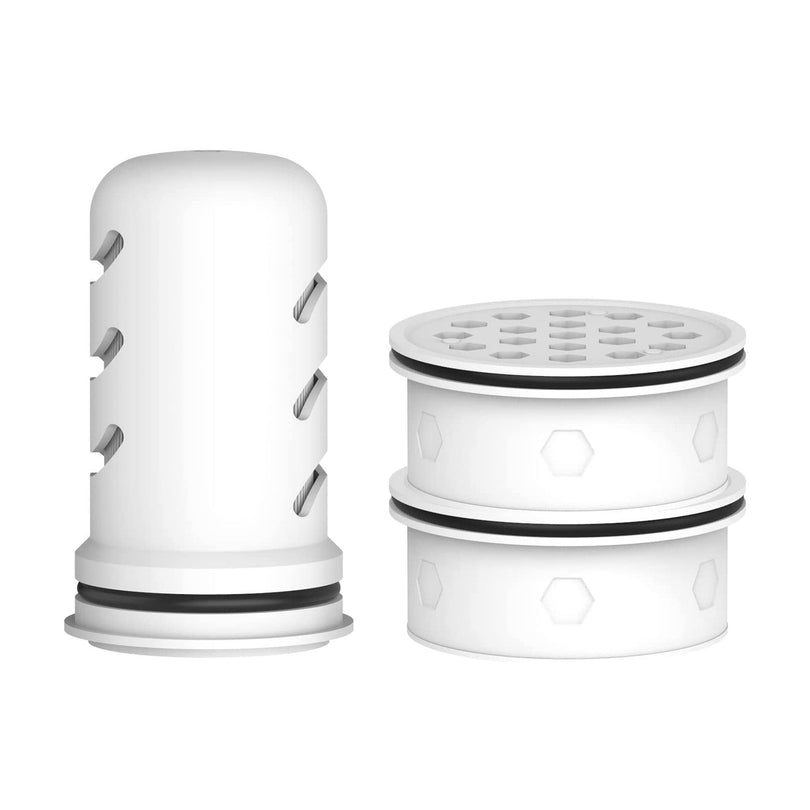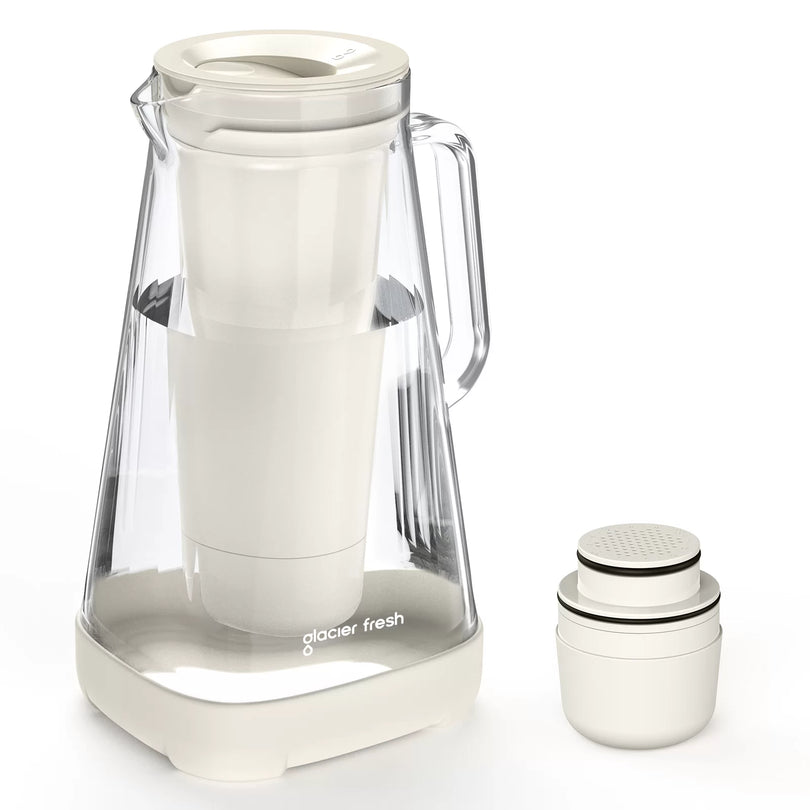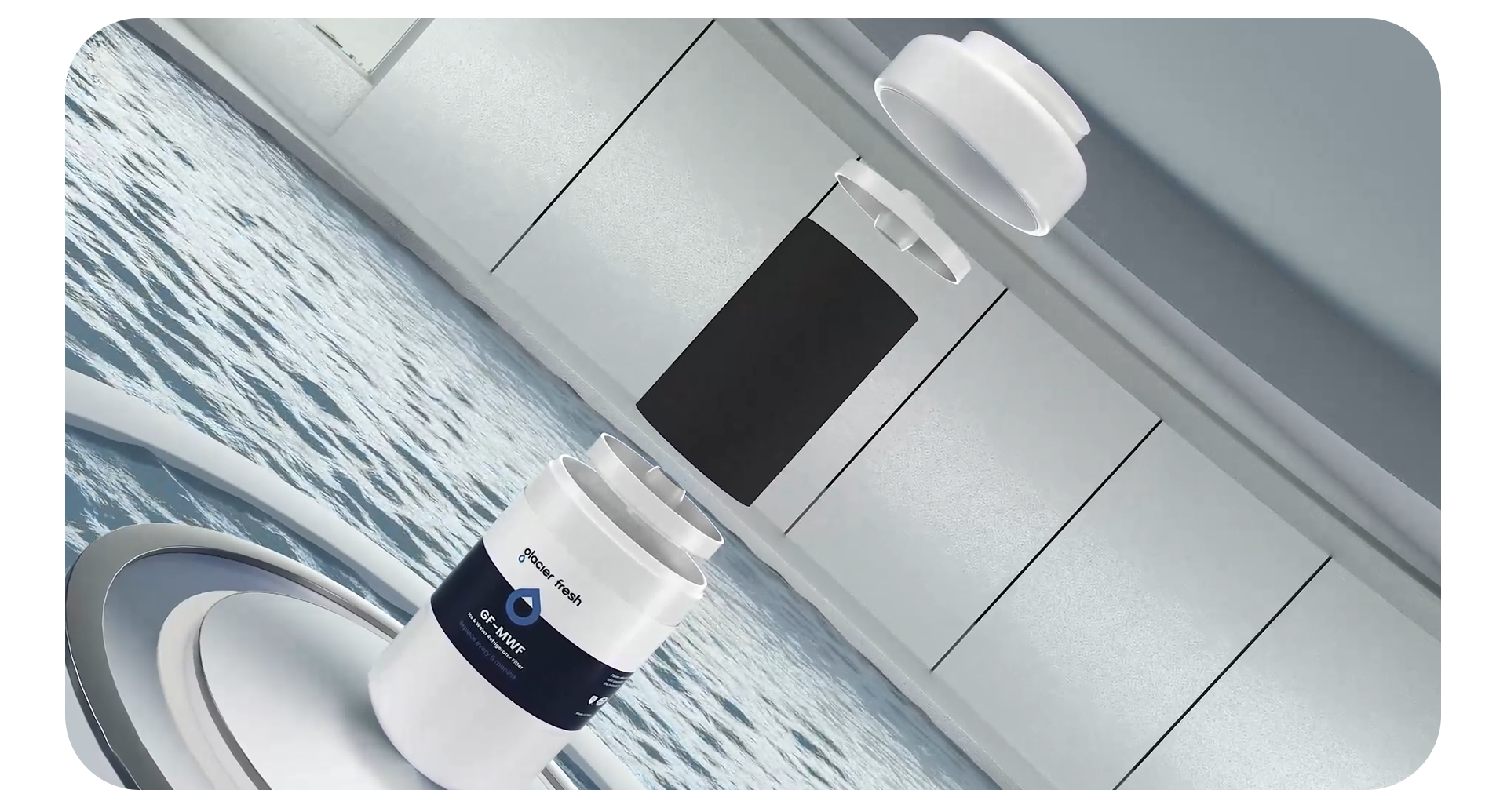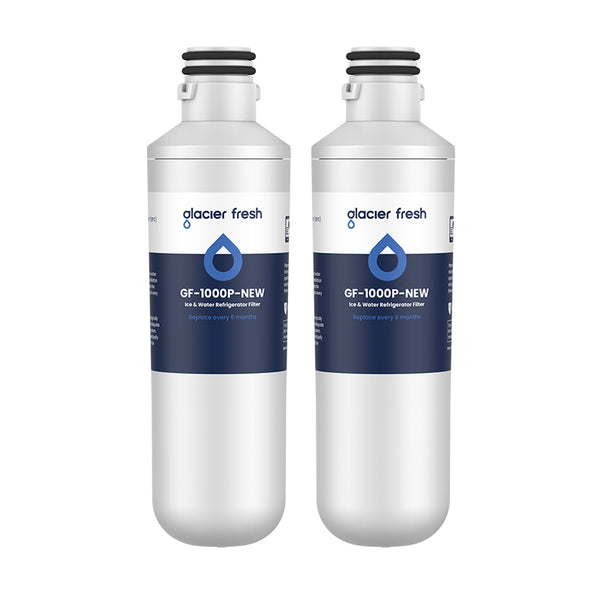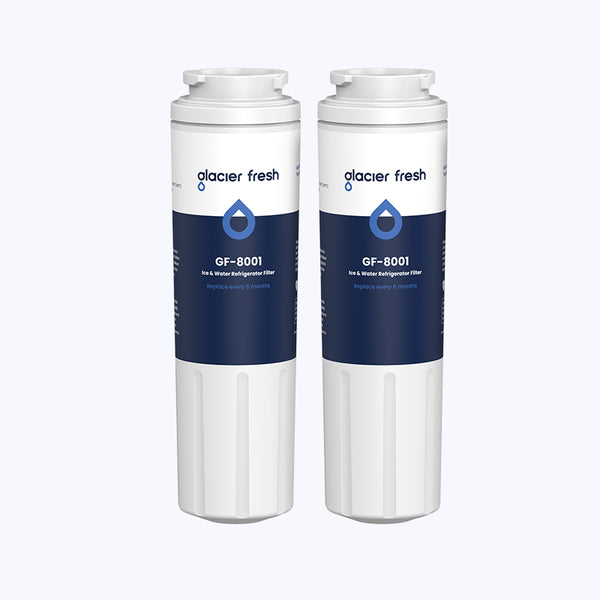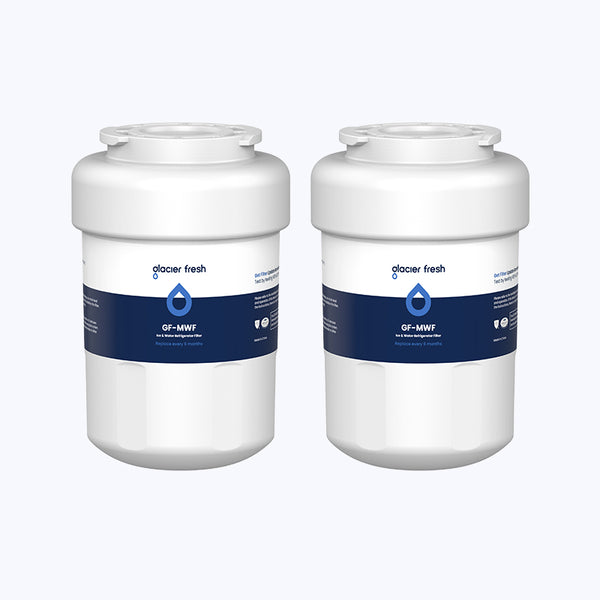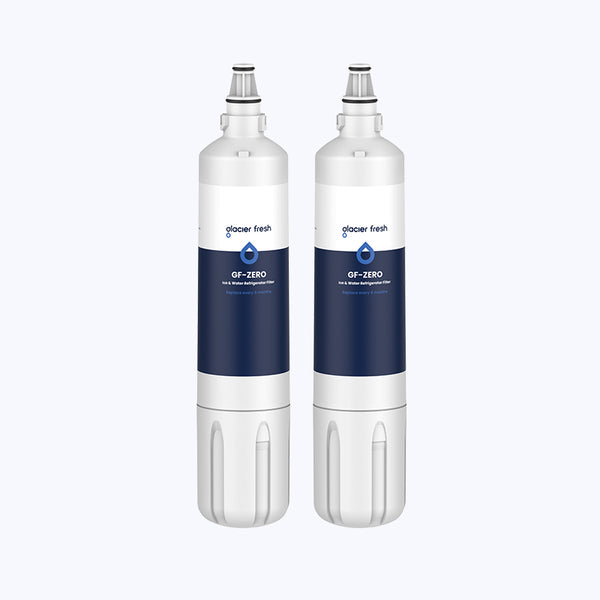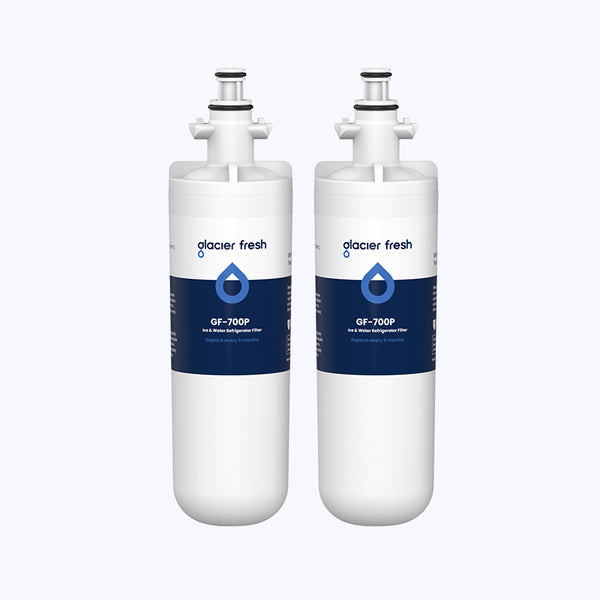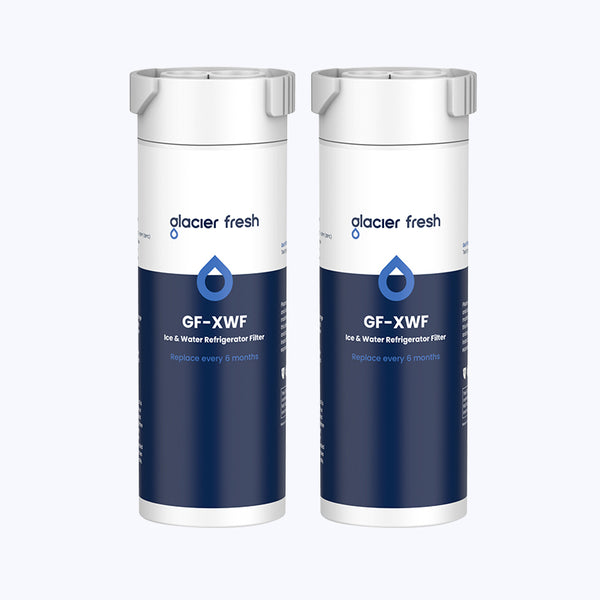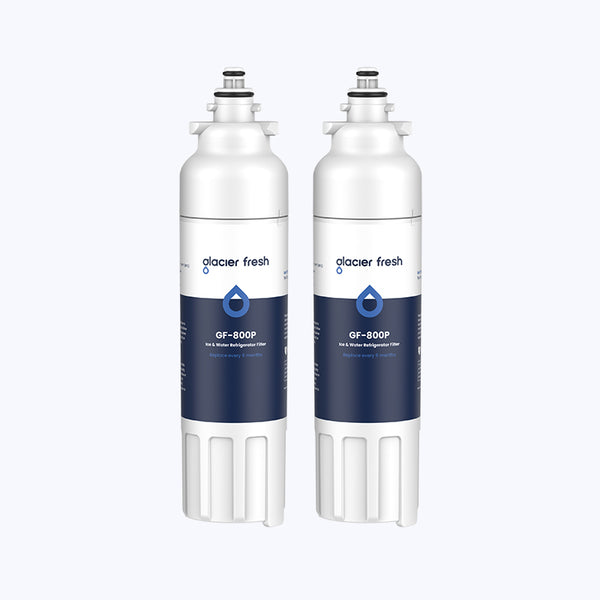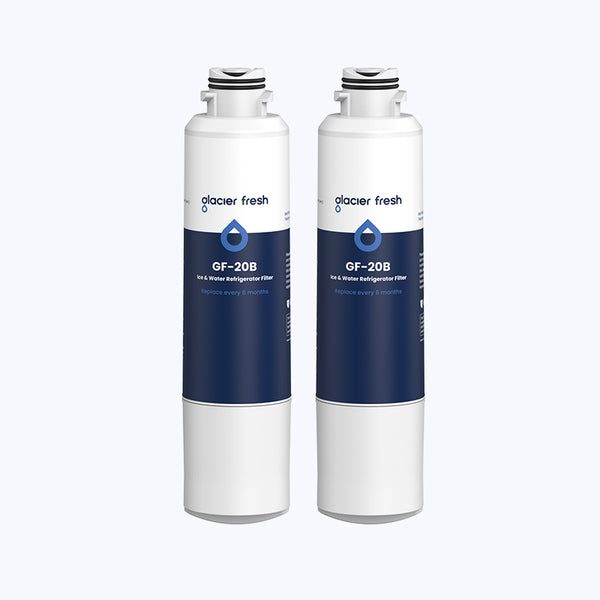Find Your Filter
As long as quality refrigerator water filters are maintained and replaced, they are effective at reducing contaminants in your tap water. What a filter is able to remove depends on the make and model, along with other factors such as the initial water quality. all Glacierfresh fridge filter are certified by NSF.
If your water is free from harmful germs or chemicals, you may decide you do not need a filter. If your water has harmful germs or chemicals, choose a filter that removes those germs or chemicals.
Refrigerator water filters often use carbon and have an average rating of 20 microns, meaning they mostly remove contaminants that affect taste and smell. Refrigerator water filters cannot be relied on to remove all particles and bacteria that may be harmful to anyone drinking that water.
high levels of chlorine or heavy metals like iron and lead can have significant health effects. Microscopic contaminants are usually safe, but you may take the risk of getting sick from a high level of arsenic, lead, or other elements in your water
Whether your current filter is clogged, expired, or you're simply not using the dispenser, most newer fridges are designed to keep working with a bypass in place. But skipping the filter altogether has a tradeoff: your water and ice may carry unwanted sediment, taste issues, or even contaminants
The frequency of filter replacement depends largely on your usage and the quality of your water supply, but as a general guideline, most manufacturers recommend changing refrigerator water filter parts every six months

